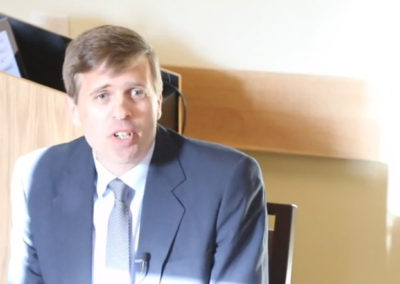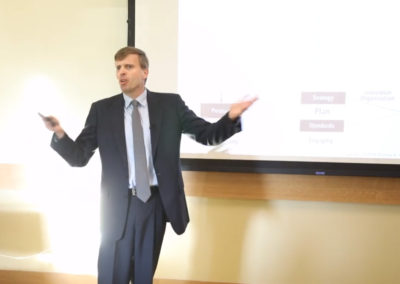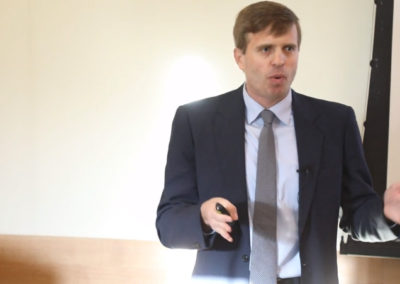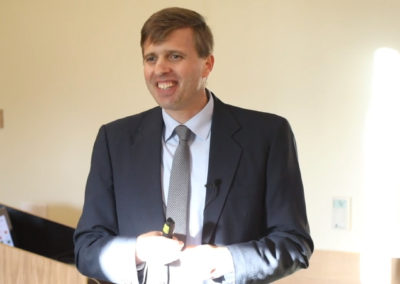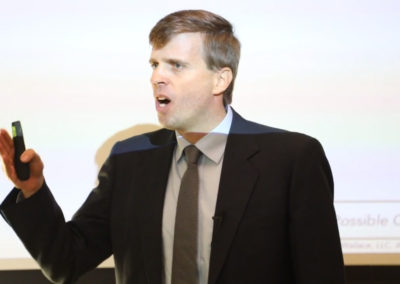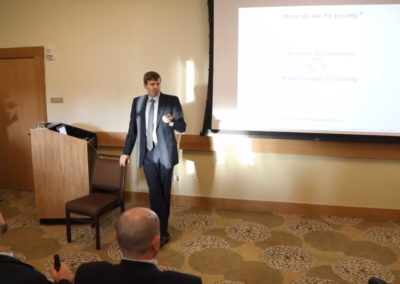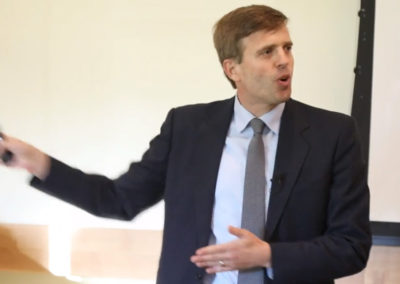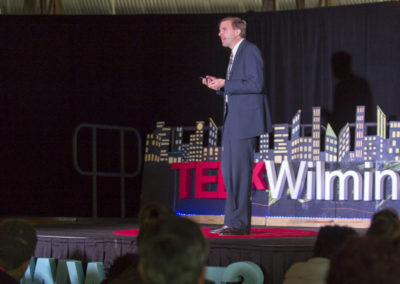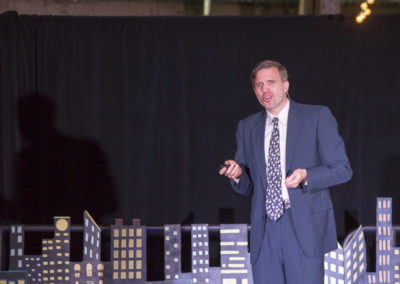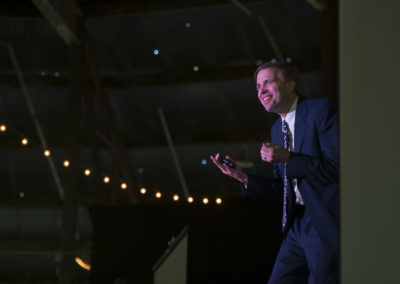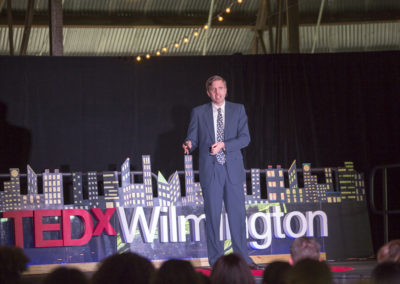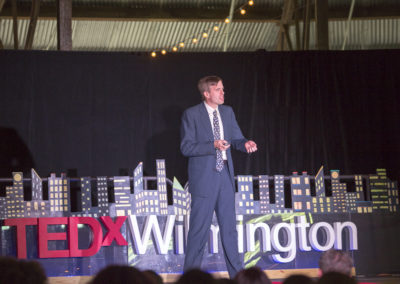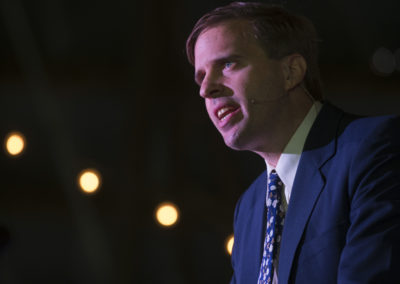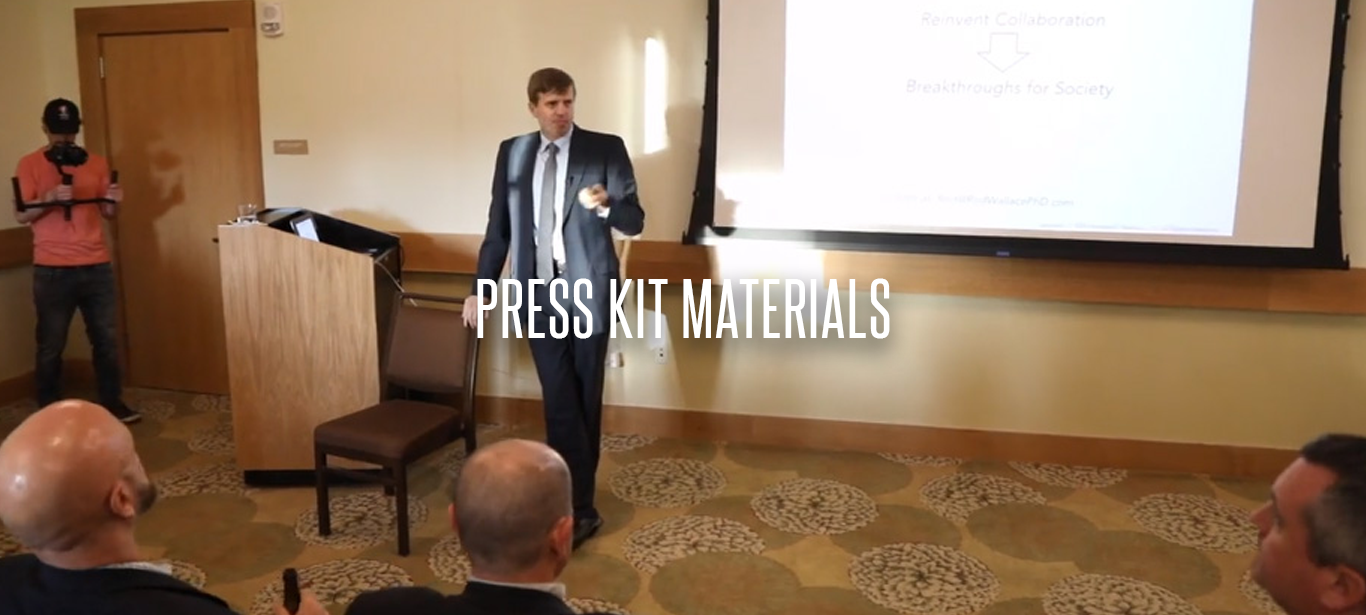
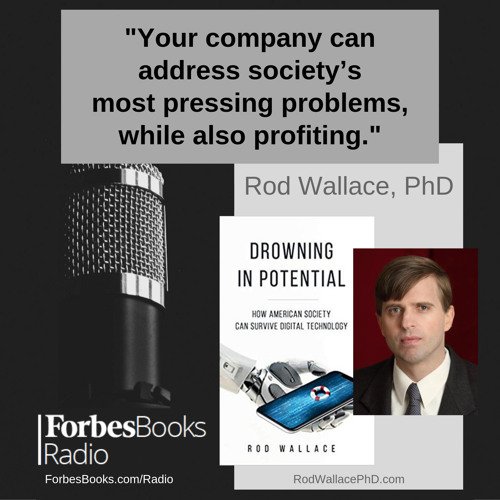
If you’re looking for a great interview guest, consider Dr. Rod Wallace. He is energetic, knowledgeable, and thought-provoking. He entertained my audience with his stories and insights, and more importantly, his pragmatic focus on business profit.
—Gregg Stebben, Forbes Books Radio

—Danette Kubanda, Emmy Winning Television Producer
PRODUCT INFORMATION
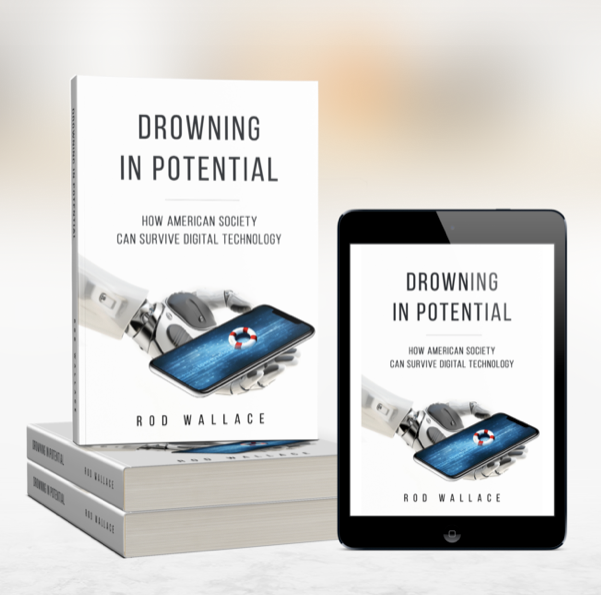
Product Specs
Title: Drowning in Potential
Subtitle: How American Society Can Survive Digital Technology
Publisher: Economic Systems Press
Date of Publication: September 20, 2018
Retail Price: $17.95 US (Paperback)
ISBN-13: 978-1-7326240-0-3
Pages: 465
Product One Sheet [Linked]
Book Introduction [Linked]
Book Summary [Linked]
Press Release (Business Press) [Linked]
Press Release (General Press) [Linked]
See Drowning in Potential page for sales copy
PROMOTIONAL INFORMATION
You are welcome to use these photos of Rod Wallace. If you click on the image, it will pop up to a larger version. You can then click the “Download this image” link to save the photo to your own computer.
INTERVIEW RESOURCES
Introductory Talking Points
You can download my Introductory Talking Points here.
Interview Topics
Vision Beyond the Bottom Line
Vision Beyond the Bottom Line is an approach to expanding business profit while solving some of society’s biggest challenges.
[Read more]
The goal in business is to create profit. While solving problems creates value, solving society’s biggest problems requires coordination beyond a single organization. As growing technology adds complexity to our world, no organization controls all the moving parts required to enact real change. Visionary leaders must work across organization boundaries to solve our greatest issues—and make a meaningful profit.
The cocoa and chocolate industry exemplifies this approach to growing profit: business leads the efforts that includes corporations, NGOs, and farmers to solve some of Western Africa’s toughest societal challenges, while benefitting shareholders with higher profits as a result.
This interview topic, based on Rod Wallace’s TedX talk, will lead your audience to discover how businesses can earn a profit by collaborating with others to solve some of society’s largest problems. The interview can inspire business audiences to deliver meaningful profit, and it can inspire general audiences to engage with businesses that can make a difference.
Digital technology and society
American society has been transformed by digital technology with spectacular benefits. So why is society suffering from pressing issues caused by this same technology?
[Read more]
This interview topic explores the link between digital technology and our current societal issues. Your audience has likely discussed aspects of this subject with friends and colleagues; this interview can help them to contextualize their next discussion with new facts and to understand the variety of business opportunities that digital technology’s complex challenges are creating.
Is economic growth exaggerated?
We rely on measures of economic output like Gross Domestic Product (GDP) to understand the value of what our economy produces. But what if our GDP measure massively outstrips true value created?
[Read more]
As Wallace identified in his book Drowning in Potential [link to book page], more than 60% of our economy is dedicated to industries failing to deliver the basics: healthcare, education, food, finance, housing, and more are failing America in critical ways.
In this interview, Wallace, a PhD economist with traditional economic training, can help the audience understand why our economic growth measure is exaggerated and what it means for our economy overall—and for the evaluation of potential investments.
How have some societies successfully overcome the unintended consequences of new technologies, when most have not?
People around the world have access to amazing technology. However, over 80% of individuals worldwide still live on less than $10 per day. Why is this?
[Read more]
In this interview, Rod Wallace can help your audience understand the relationship between technology and the potential for a society to prosper. Technology enhances the potential benefits that a society can deliver to its citizens. However, only if the society’s cultural, governmental, and economic systems are working effectively does this potential translate into benefit for the people.
Wallace positions the discussion in terms of economic history. Several thousand years ago, societies around the world had to find ways to adapt to new tools, or “technology,” from the agricultural revolution. While agriculture only directly impacts how we use the soil, successful societies embraced the concept of economic specialization in order to effectively use the new technology.
Today, we struggle to prosper from the new technology introduced by the digital revolution. In many ways, we have come full circle. Today, our biggest challenge is bringing the work of all our specialists together so we may fully benefit from digital technology.
Wallace can provide your audience with five questions their neighborhood community must be able to answer in order to prosper in our digital age and can offer them new information to discuss with colleagues, friends, and neighbors.
Why does America have the most expensive healthcare and shortest life spans in the developed world? (Joint interview with a physician.)
The United States spends twice as much per person on healthcare as the average developed country. So, why do we have the shortest lives in the developed world?
[Read more]
This interview topic focuses on the complexity of the American healthcare system. Our healthcare industry boasts dedicated employees and spectacular technology. For example, a nurse in a typical urban hospital interacts with 130 different types of specialists on a regular basis and has access to constantly evolving technologies. Yet due to coordination problems, created by all of the moving people and parts this complexity makes the nurse’s job more difficult.
Your audience can learn about the importance of a shared vision in healthcare and the importance of understanding how different elements of the system impact each other. They will walk away with one question any state politician should be able to answer about their state’s healthcare system and three questions they can ask their healthcare provider to ensure their provider’s advice is truly well-rounded.
Why is America spending more on education with little improvement in student outcomes? (Joint interview with education representative.)
Since 1973, we have more than doubled real American spending per pupil on education, yet we see no corresponding improvements in outcomes. Far too many graduates are unprepared for employment. How can we reverse this trend?
[Read more]
This interview topic focuses on the complexity of American education. As the options for education are expanding and new technology is thrown into the mix, our education leadership is fragmenting. No organization, be it governmental, nonprofit, or private, controls all the moving parts required to enact real change. Visionary education leaders must provide a higher level of leadership that aligns across organization boundaries.
Your audience can learn about the importance of a shared vision in education. Wallace will share three questions they can ask their local school board, principal, or teacher to help clarify whether they agree or disagree with their school’s approach.
Live interview samples
Rod on ForbesBooks Radio
Rod interviewed by Emmy Award winning Danette Kubanda
Endorsements
“If you’re looking for a great interview guest, consider Dr. Rod Wallace. He is energetic, knowledgeable, and thought-provoking. He entertained my audience with his stories and insights, and more importantly, his pragmatic focus on business profit.”
Gregg Stebben, ForbesBooks Radio
“Dr. Rod Wallace presents complicated societal issues in an easy to understand and actionable way. After interviewing him, my viewers and I feel empowered to make better decisions that can positively impact the world we all share.”
Danette Kubanda, Emmy Winning Television Producer
“You were a great guest. I’m really glad I had you on.”
Melanie Collette, Host of Money Talk with Melanie


